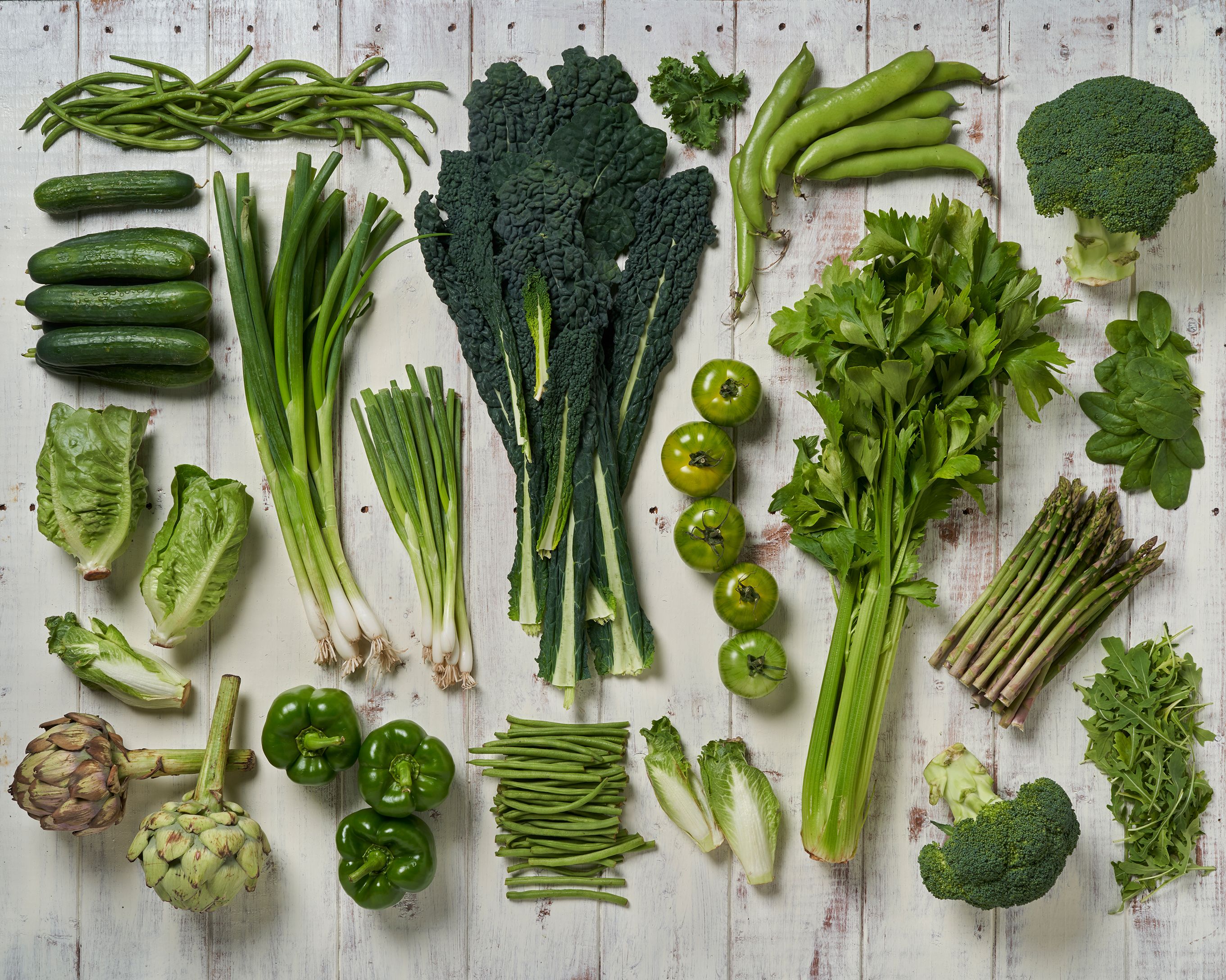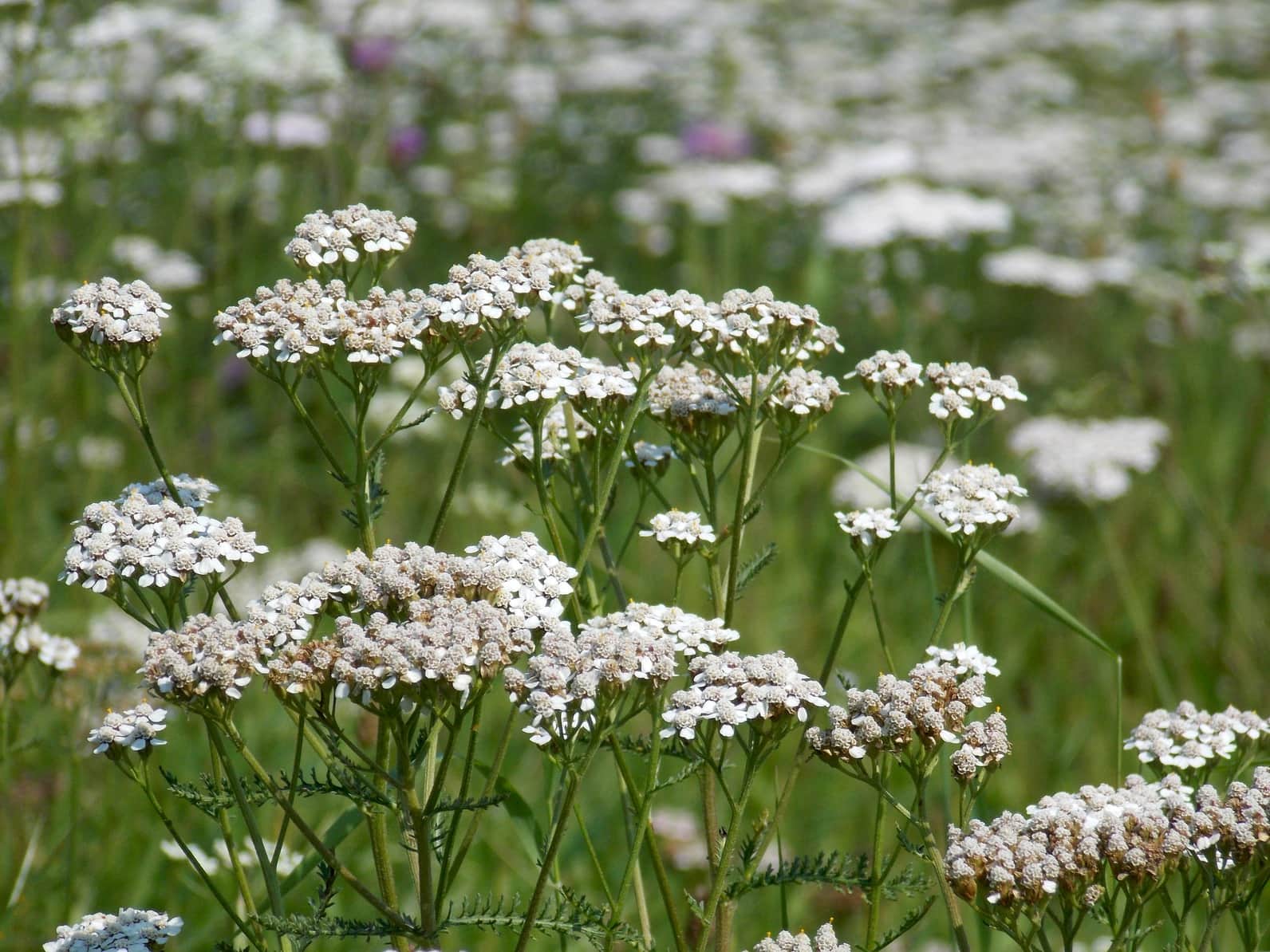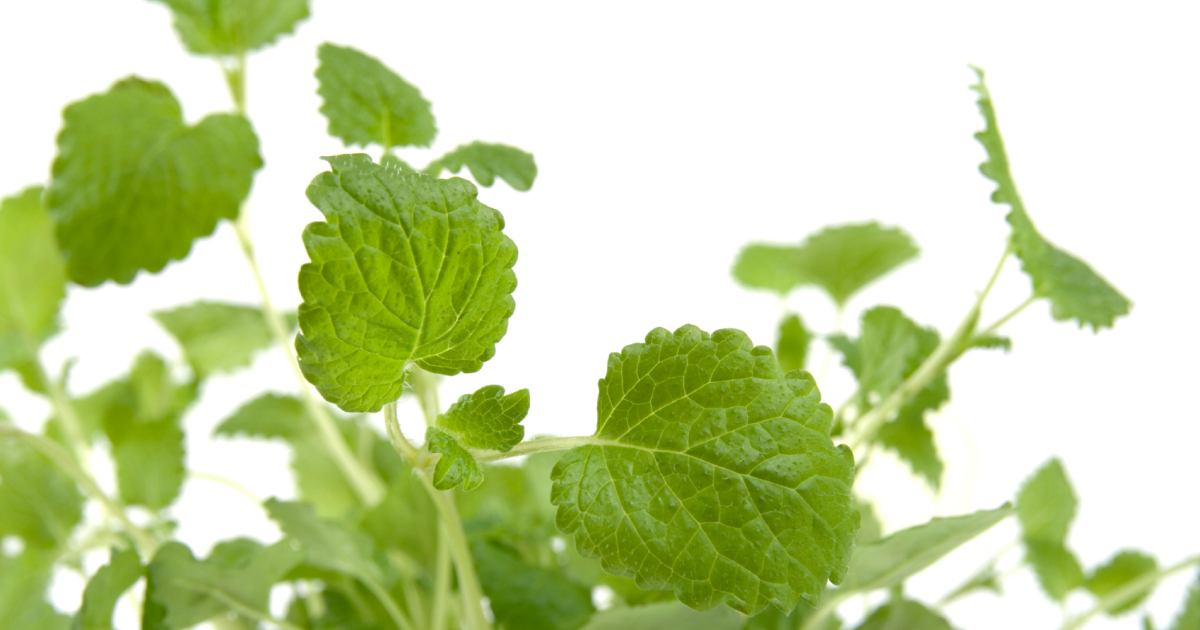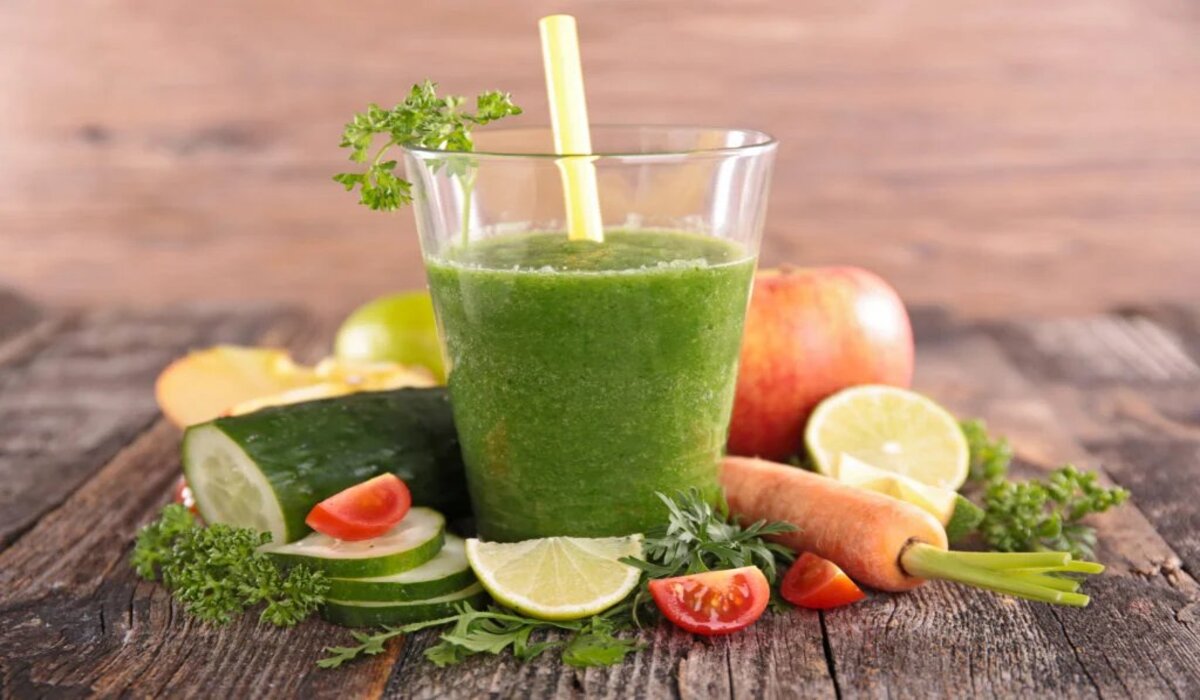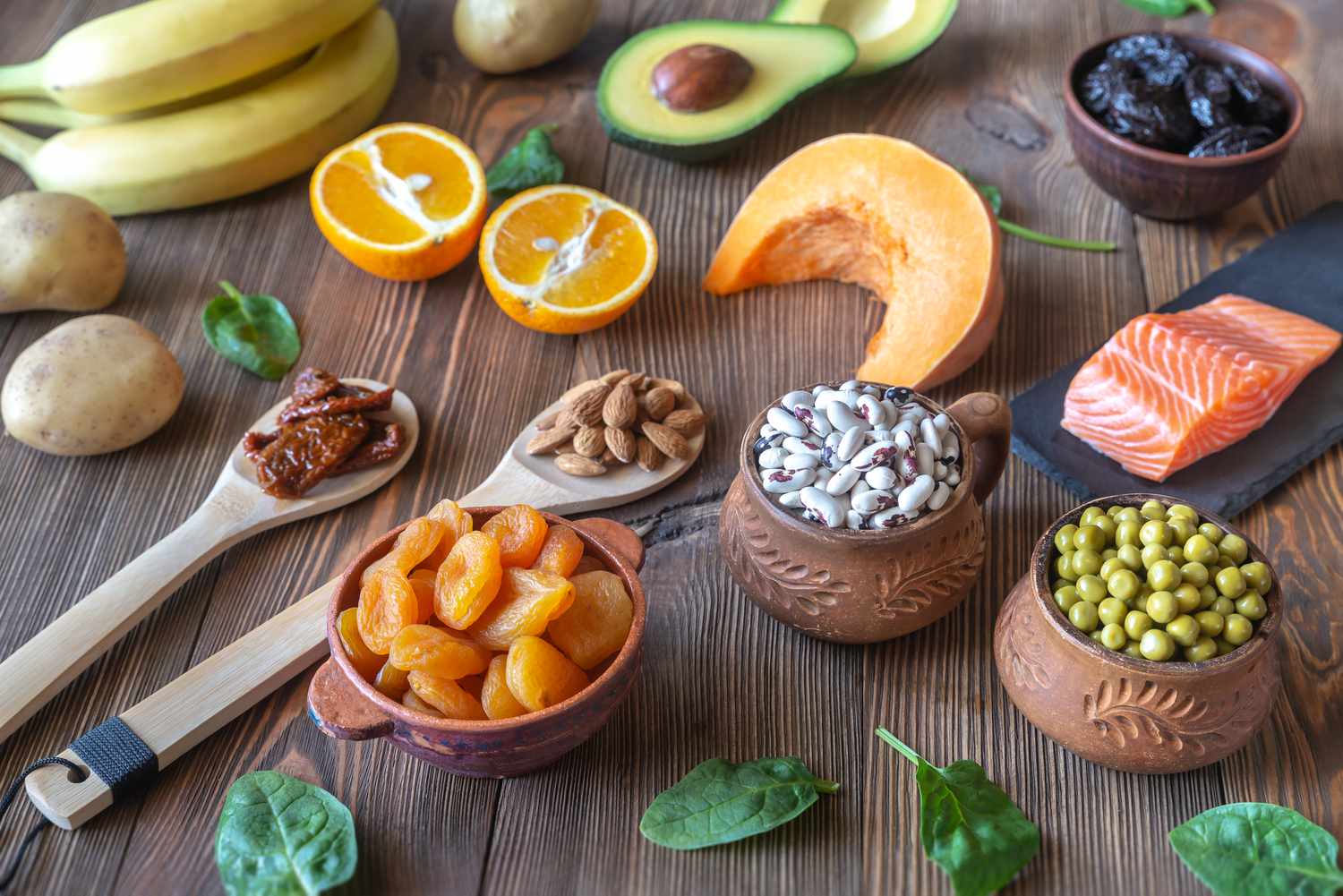Home>Gardening Techniques>DIY Projects>What Is Good To Use As Compost Activator
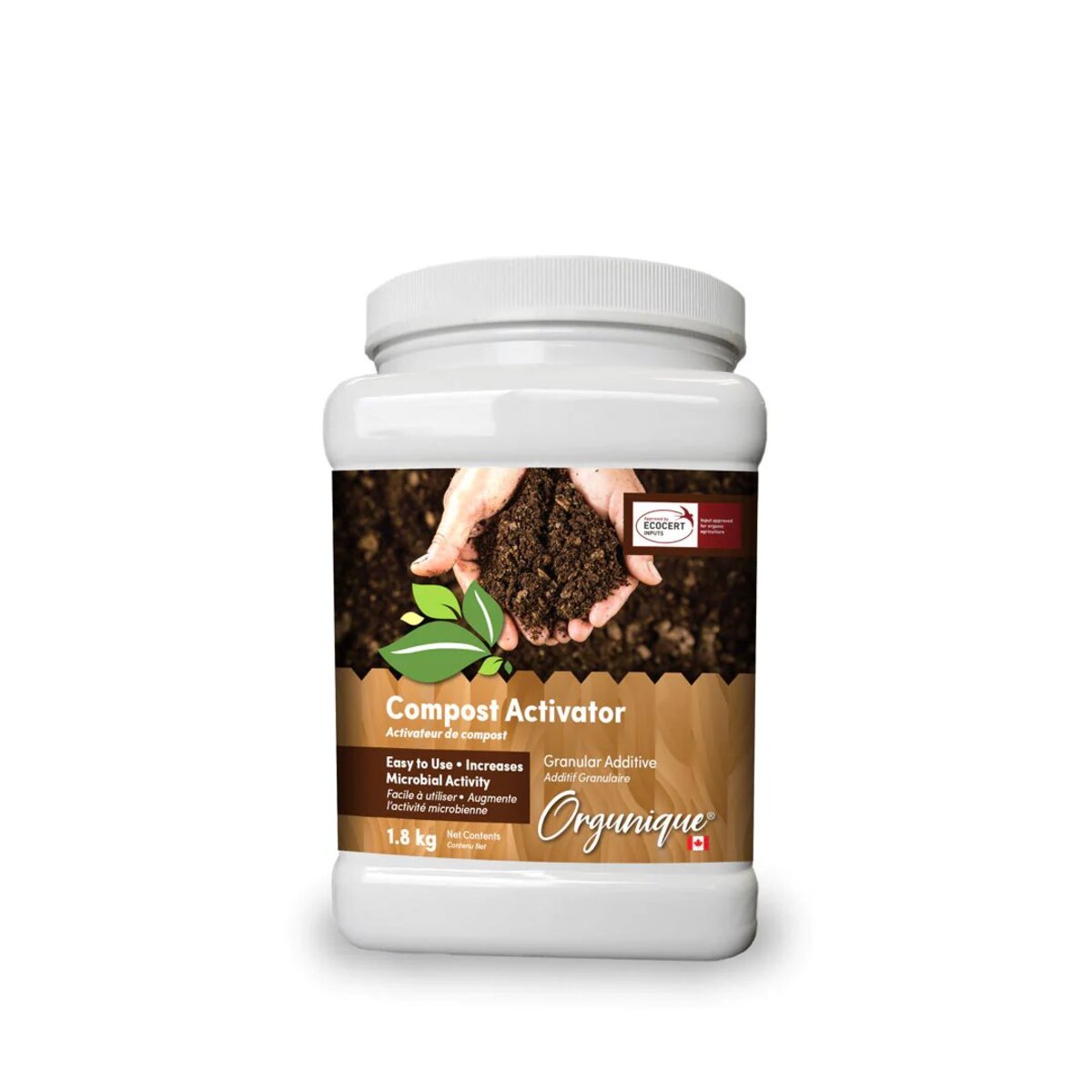

DIY Projects
What Is Good To Use As Compost Activator
Modified: January 22, 2024
Looking for DIY projects? Discover the best compost activators to enhance the breakdown of organic materials and create nutrient-rich soil for your gardening endeavors.
(Many of the links in this article redirect to a specific reviewed product. Your purchase of these products through affiliate links helps to generate commission for Chicagolandgardening.com, at no extra cost. Learn more)
Table of Contents
- Introduction
- Benefits of Using a Compost Activator
- Factors to Consider When Choosing a Compost Activator
- Natural Ingredients That Can be Used as Compost Activators
- Manure as a Compost Activator
- Coffee Grounds as a Compost Activator
- Grass Clippings as a Compost Activator
- Seaweed as a Compost Activator
- Vegetable Scraps as a Compost Activator
- Eggshells as a Compost Activator
- Conclusion
Introduction
Composting is a fantastic way to reduce waste and create nutrient-rich soil for your garden. It involves the decomposition of organic materials such as food scraps, yard waste, and leaves, resulting in a dark, crumbly substance called compost. While composting is a natural process, adding a compost activator can speed up the decomposition process and help create a more nutrient-dense end product.
A compost activator, also known as a compost accelerator or compost starter, contains beneficial microorganisms and organic materials that break down the materials in your compost pile more efficiently. It helps to create optimal conditions for decomposition, ensuring that you get rich, fertile compost in a shorter amount of time.
In this article, we will explore the benefits of using a compost activator, factors to consider when choosing one, and natural ingredients that can be used as compost activators. Whether you are a seasoned gardener or a beginner, understanding the role of a compost activator and its various options can help you make informed decisions and achieve excellent results in your composting efforts.
Benefits of Using a Compost Activator
Using a compost activator offers several advantages in the composting process. Here are some of the key benefits:
- Accelerates Decomposition: One of the primary benefits of using a compost activator is that it speeds up the decomposition process. The activator contains microorganisms that break down organic materials more efficiently, resulting in faster compost production. This is especially useful if you want to have a steady supply of compost for your garden.
- Increases Nutrient Content: A compost activator helps enhance the nutrient content of your compost. It supplies beneficial bacteria and fungi that enrich the compost with essential nutrients like nitrogen, phosphorus, and potassium. These nutrients are vital for plant growth and can significantly improve the health and productivity of your garden.
- Reduces Odor and Pest Problems: By promoting faster decomposition, a compost activator helps minimize unpleasant odors associated with rotting organic matter. It also reduces the chances of attracting pests and flies to your compost pile, keeping your garden clean and pest-free.
- Creates a More Balanced pH Level: pH balance is crucial for successful composting. Too acidic or too alkaline conditions can hinder the decomposition process. A compost activator contains ingredients that help balance the pH level, creating an optimal environment for the microorganisms to thrive and break down the organic matter effectively.
- Improves Soil Structure and Moisture Retention: Compost produced with the help of an activator improves the structure of your soil. It enhances its ability to retain moisture, reduce erosion, and improve drainage. This creates an ideal growing environment for plants and ensures better root development and overall plant health.
Using a compost activator can significantly enhance the quality and efficiency of your composting process. It not only speeds up decomposition but also enriches the compost with essential nutrients, reduces odors and pests, balances pH levels, and improves soil structure. These benefits make composting with an activator a smart choice for any gardener looking to create nutrient-rich soil for their plants.
Factors to Consider When Choosing a Compost Activator
When selecting a compost activator, there are certain factors to consider to ensure you choose the right one for your needs. Here are some key factors to keep in mind:
- Type of Composting: Consider the type of composting you are doing. Are you using a traditional compost pile, a compost bin, or a worm composting system? Different activators may be more suitable for specific composting methods.
- Ingredients: Check the ingredients of the compost activator you are considering. Look for natural ingredients that encourage microbial activity and decomposition. Avoid activators that contain synthetic chemicals or additives, as they may alter the nutrient balance in your compost.
- Application Method: Determine the application method that works best for you. Compost activators come in various forms such as powders, granules, liquids, or pre-packaged compost starter kits. Choose a method that is convenient and easy for you to apply to your compost pile.
- Quantity: Consider the quantity of activator you will need based on the size of your compost pile. Some activators require specific measurements per cubic yard or pound of compost material. Ensure you have enough activator to effectively treat your compost pile.
- Cost: Evaluate the cost of the compost activator. Compare prices and consider the value for money. Remember that a higher price does not always guarantee better quality, so make sure to read reviews and consider recommendations from experienced composters.
- Compatibility: Ensure that the compost activator is compatible with the materials you are composting. Some activators may be more effective for certain types of organic waste, so check if they are suitable for your composting materials, whether it is food scraps, yard waste, or a combination of both.
By considering these factors, you can make an informed decision when choosing a compost activator that suits your composting method, ingredients preference, application needs, quantity requirements, cost considerations, and compatibility with your compost materials. Selecting the right activator will help optimize the composting process and ensure the best results for your garden.
Natural Ingredients That Can be Used as Compost Activators
If you prefer a more natural approach for your compost activator, there are several ingredients you can use to enhance the decomposition process. These natural additives will provide essential nutrients and encourage microbial activity. Here are some effective options:
- Manure: Animal manure, such as cow, horse, or chicken manure, is a commonly used compost activator. Manure is rich in nitrogen and beneficial bacteria, which accelerate decomposition and add nutrients to the compost pile. Make sure the manure is well-aged or composted before adding it to your compost. Fresh manure can be too strong and may introduce weed seeds or pathogens.
- Coffee Grounds: Coffee grounds are an excellent compost activator that adds nitrogen to the mix. They also improve soil structure and attract earthworms, which aid in decomposition. Simply sprinkle coffee grounds directly onto your compost pile or mix them with other compostable materials.
- Grass Clippings: If you have a lawn, grass clippings can be a valuable compost activator. They are high in nitrogen, which helps heat up the compost pile and speed up decomposition. Ensure that the clippings are pesticide-free and mix them well with other materials to prevent matting or odors.
- Seaweed: Seaweed is an excellent source of trace minerals and can be used as a compost activator. It enriches the compost with nutrients and helps improve its texture. Rinse off excess salt from the seaweed, chop it into small pieces, and add it to your compost pile.
- Vegetable Scraps: Leftover vegetable scraps from your kitchen can serve as a compost activator. They are rich in nutrients and valuable organic matter. Chop or shred the scraps into smaller pieces to speed up the decomposition process and prevent them from attracting pests.
- Eggshells: Eggshells are a fantastic addition to your compost pile as they provide calcium, which helps balance the pH level. Crushed eggshells also help aerate the compost, improving airflow. Rinse and crush the eggshells before adding them to the pile.
When using these natural ingredients as compost activators, it is essential to create a balanced mixture. Combine a variety of organic materials, such as kitchen scraps, yard waste, and the activator, to provide a range of nutrients and encourage a diverse community of microorganisms in your compost pile. Remember to turn your compost regularly to ensure proper aeration and decomposition.
Manure as a Compost Activator
Manure is a popular and effective compost activator that can greatly enhance the decomposition process. It is rich in nitrogen, organic matter, and beneficial bacteria, making it an excellent source of nutrients for your compost pile. Here’s how you can use manure as a compost activator:
Choosing the Right Manure: Different types of animal manure can be used as compost activators, including cow, horse, chicken, and rabbit manure. When selecting manure, it is important to ensure that it is well-aged or composted. Fresh manure can be too strong and may contain weed seeds or harmful pathogens.
Preparing the Manure: Before adding manure to your compost pile, it is recommended to break it down into smaller pieces. This can be done by either shredding or composting the manure separately beforehand. This process helps speed up decomposition and allows for easier mixing with other compostable materials.
Adding Manure to the Compost Pile: Once the manure is well-aged and prepared, you can mix it into your compost pile. Aim for a ratio of about 1 part manure to 5 parts other compostable materials, such as leaves, kitchen scraps, or yard waste. This will ensure a balanced mixture and provide the necessary nitrogen for microbial activity.
Turning and Moistening the Compost Pile: To ensure proper decomposition, regularly turn your compost pile to ensure proper airflow. This helps prevent unpleasant odors and ensures that the manure is evenly distributed throughout the pile. Additionally, check the moisture level of the compost pile and adjust as needed. The ideal moisture content should be similar to a damp sponge.
Benefits of Using Manure as a Compost Activator: Manure not only provides essential nutrients but also introduces beneficial bacteria that aid in the decomposition process. The nitrogen in manure accelerates the breakdown of organic materials, resulting in faster compost production. Additionally, the organic matter in manure improves soil structure, moisture retention, and overall soil fertility.
Precautions: It is important to note that not all manure is suitable for composting. Avoid using manure from animals that have been fed antibiotics, as it can disrupt the balance of microorganisms in your compost pile. If you’re unsure about the source or quality of the manure, it is best to consult with local agricultural experts or use alternative compost activators.
By incorporating well-aged and properly prepared manure into your compost pile, you can boost the decomposition process, enrich your compost with essential nutrients, and improve the overall quality of your finished compost. With the right techniques and precautions, manure can be an effective and natural compost activator for your gardening needs.
Coffee Grounds as a Compost Activator
Coffee grounds are a readily available and effective compost activator that can greatly enhance the decomposition process. Instead of throwing away your used coffee grounds, repurpose them in your compost pile to boost its nutrient content and accelerate decomposition. Here’s how you can use coffee grounds as a compost activator:
Collecting Coffee Grounds: Start by collecting used coffee grounds from your coffee maker or local coffee shops. Coffee grounds are rich in nitrogen, making them an excellent addition to your compost pile. It’s important to note that coffee filters are usually compostable, so you can add them to the pile as well.
Adding Coffee Grounds to the Compost Pile: Coffee grounds can be added directly to your compost pile or mixed with other compostable materials. It’s best to add them in thin layers rather than large clumps to prevent them from compacting and creating airless pockets in the pile. Aim for a ratio of about 20% coffee grounds to 80% other materials for optimal results.
Mixing Coffee Grounds: To ensure a well-balanced compost mixture, it’s important to mix or layer the coffee grounds with other organic materials. This helps prevent the coffee grounds from clumping together and allows for better airflow and decomposition. Alternating layers of coffee grounds with materials like leaves, grass clippings, or vegetable scraps will create a diverse compost mixture.
Avoiding Excessive Use: While coffee grounds are beneficial, it’s important not to overdo it. Too much coffee grounds can create an imbalance in your compost, leading to an acidic environment. Aim to use coffee grounds in moderation and maintain a balanced blend of both carbon-rich (browns) and nitrogen-rich (greens) materials for optimal composting conditions.
Additional Considerations: It’s worth noting that coffee grounds can attract earthworms, which are beneficial for composting. They help break down the organic material and improve the aeration of the compost pile. Additionally, coffee grounds can also act as a natural deterrent for pests such as slugs and snails.
Benefits of Using Coffee Grounds: Coffee grounds provide nitrogen to the compost, which is essential for the growth of beneficial microorganisms and the decomposition of organic matter. The nitrogen content helps heat up the compost pile, speeding up the decomposition process. Coffee grounds also contribute to the overall nutrient content of the compost and improve the soil structure, moisture retention, and drainage when incorporated into the garden.
By utilizing coffee grounds as a compost activator, you can prevent waste, improve your compost, and enhance the health and productivity of your garden. So before you discard your used coffee grounds, consider repurposing them as a valuable resource for composting.
Grass Clippings as a Compost Activator
If you have a lawn, grass clippings can be an excellent and easily accessible compost activator. They are rich in nitrogen, making them a valuable source of nutrients for your compost pile. By using grass clippings as a compost activator, you can speed up the decomposition process and create nutrient-rich compost for your garden. Here’s how you can effectively utilize grass clippings in your composting efforts:
Harvesting Grass Clippings: Collect fresh grass clippings after mowing your lawn. It’s important to use clippings that are free from chemicals, such as pesticides or herbicides, as these can interfere with the composting process and harm beneficial organisms.
Addition and Layering: As grass clippings are high in nitrogen, they should be added to your compost pile in thin layers or mixed with other compostable materials. Layering grass clippings with carbon-rich materials, such as leaves or shredded newspaper, helps create a balanced ratio of carbon to nitrogen. Aim for a ratio of roughly 2 parts carbon-rich materials to 1 part grass clippings.
Aeration and Mixing: To ensure proper decomposition, regularly turn and mix the compost pile. This allows for better airflow, helping to prevent the grass clippings from compacting and becoming anaerobic. Mixing the grass clippings evenly throughout the pile promotes even decomposition and helps avoid clumping or matting.
Moisture Maintenance: Grass clippings have a high moisture content, so it’s important to monitor the moisture levels within the compost pile. If the pile feels too dry, lightly mist it with water to maintain a damp, but not overly wet, consistency. This helps create an environment conducive to decomposition and microbial activity.
Considerations: Due to their high nitrogen content, grass clippings can generate heat in the compost pile, especially when added in large quantities. This can lead to a hot composting process, which is beneficial for breaking down organic matter quickly. However, it’s important to balance the nitrogen-rich grass clippings with carbon-rich materials to prevent an overly hot pile that may inhibit beneficial microbial activity.
The Benefits of Using Grass Clippings: Incorporating grass clippings into your compost pile as a compost activator offers numerous benefits. Grass clippings provide valuable nitrogen, which promotes the decomposition of organic materials. Additionally, using grass clippings diverts them from the waste stream, reducing the amount of yard waste that goes to landfills. The resulting compost can then be used to improve soil fertility, structure, and moisture retention in your garden.
By utilizing grass clippings as a compost activator, you can not only reduce waste but also enhance the quality and efficiency of your composting efforts. So, instead of disposing of your grass clippings, repurpose them as a valuable resource for creating nutrient-rich compost for your garden.
Seaweed as a Compost Activator
Seaweed is a natural and beneficial compost activator that can greatly enhance the quality and nutrient content of your compost. Seaweed is rich in trace minerals, vitamins, and other beneficial elements that promote plant growth. Incorporating seaweed into your compost pile can improve decomposition and provide valuable nutrients for your garden. Here’s how you can effectively use seaweed as a compost activator:
Harvesting Seaweed: If you live near a beach, you can collect seaweed washed up on the shore. Ensure you take only what is allowed and follow any local regulations. Alternatively, you can purchase dried seaweed from garden centers or online sources. Look for seaweed that is natural and free from any chemicals or pollutants.
Preparing Seaweed: If you are using fresh seaweed, rinse it thoroughly with fresh water to remove excess salt. Chop the seaweed into smaller pieces to aid in decomposition and facilitate easier mixing with other compostable materials. If you are using dried seaweed, soak it in water until it becomes soft and pliable before adding it to your compost pile.
Adding Seaweed to the Compost Pile: Mix the prepared seaweed into your compost pile. Layer it with other organic materials, such as kitchen scraps, leaves, or grass clippings, to maintain a well-balanced compost. Aim for a ratio of approximately 1 part seaweed to 5 parts other compostable materials. This ratio will provide sufficient nutrients and prevent the compost from becoming too salty or imbalanced.
Moisture and Aeration: Like with any compost pile, it’s crucial to maintain the right moisture and aeration levels when using seaweed as a compost activator. Ensure your compost remains moist but not waterlogged, similar to a damp sponge. Regular turning and mixing of the compost pile will help promote proper airflow, prevent compacting, and facilitate even decomposition.
The Benefits of Using Seaweed: Seaweed is a nutrient powerhouse for your compost. It contains a wide range of trace minerals, including potassium, magnesium, iron, and iodine, which contribute to plant growth and overall soil health. Seaweed also helps improve soil structure, water retention, and the ability to resist pests and diseases. Furthermore, utilizing seaweed as a compost activator helps prevent it from going to waste and contributes to sustainable gardening practices.
Precautions: While seaweed is a beneficial compost activator, it’s important to ensure it comes from a clean and unpolluted source. Avoid using seaweed that may have been treated with pesticides, fungicides, or other chemicals. Additionally, be mindful of local regulations regarding the collection and use of seaweed, as excessive harvesting can harm coastal ecosystems.
By incorporating seaweed into your compost pile, you not only enhance the nutrient content of your compost, but you also promote sustainable gardening practices. Seaweed provides essential trace minerals and nutrients, improves soil health, and helps foster healthy plant growth. So, the next time you have access to seaweed, consider using it as a valuable compost activator for your garden.
Vegetable Scraps as a Compost Activator
Vegetable scraps are a readily available and effective compost activator that can greatly contribute to the decomposition process. Instead of throwing away your kitchen leftovers, repurpose them in your compost pile to boost its nutrient content and accelerate decomposition. Using vegetable scraps as a compost activator is an eco-friendly way to reduce waste and create nutrient-rich compost for your garden. Here’s how you can effectively utilize vegetable scraps in your composting efforts:
Collecting Vegetable Scraps: Collect vegetable scraps from your kitchen, such as peels, stems, and leftover pieces of fruits and vegetables. Avoid using any scraps that have been cooked with oils, fats, or seasonings, as they can disrupt the composting process or attract pests.
Preparing Vegetable Scraps: To aid in decomposition and facilitate easier mixing with other compostable materials, it’s beneficial to cut or chop the vegetable scraps into smaller pieces. This increases the surface area, allowing microorganisms to break down the material more efficiently.
Adding Vegetable Scraps to the Compost Pile: Add the vegetable scraps to your compost pile in thin layers or mix them with other organic materials. Layering the scraps with materials rich in carbon, such as shredded leaves or newspaper, helps create a balanced carbon-to-nitrogen ratio and prevents the pile from becoming too dense or compacted.
Moisture and Turning: It’s important to maintain adequate moisture levels in the compost pile. Vegetable scraps have a high water content, so they can add moisture to the pile. However, if the pile becomes too wet, it may hinder proper decomposition. Regularly turning the compost pile helps promote airflow and prevents the formation of anaerobic conditions.
Benefits of Using Vegetable Scraps: Vegetable scraps provide essential nutrients, including nitrogen, to the compost pile. This promotes the growth of beneficial microorganisms, speeds up the decomposition process, and ultimately results in nutrient-rich compost. Using vegetable scraps as a compost activator also reduces the amount of organic waste sent to landfills, supporting sustainable waste management practices.
Precautions: While vegetable scraps are excellent compost activators, it’s important to avoid adding any diseased plant material or invasive weeds to your compost pile. These can potentially spread diseases or pests to your garden when the compost is applied. Additionally, be mindful of any dietary restrictions of plants or animals that may be consuming the compost in the future.
By incorporating vegetable scraps into your compost pile as a compost activator, you not only reduce waste but also enhance the quality and nutrient content of your compost. This supports a healthier garden ecosystem and reduces the need for synthetic fertilizers. So, before you toss those vegetable scraps in the trash, give them a new purpose by transforming them into valuable compost for your garden.
Eggshells as a Compost Activator
Eggshells are a natural and beneficial compost activator that can greatly enhance the decomposition process and provide valuable nutrients to your compost. Instead of throwing away your eggshells, repurpose them in your compost pile to enrich the nutrient content and improve the overall quality of your compost. Here’s how you can effectively use eggshells as a compost activator:
Collecting and Preparing Eggshells: Collect eggshells from your kitchen after using the eggs. Rinse them gently to remove any remaining egg residue. Allow the eggshells to air dry completely. Once dry, you can crush them into smaller pieces to facilitate decomposition and better mixing with other compostable materials.
Adding Eggshells to the Compost Pile: Add the crushed eggshells to your compost pile. You can either sprinkle them directly onto the pile or layer them with other organic materials. It’s essential to distribute the eggshells evenly throughout the compost pile to ensure they decompose effectively.
Benefits of Using Eggshells: Eggshells are primarily made of calcium carbonate, an essential nutrient for plants. By adding eggshells to your compost, you enrich the soil with calcium, which promotes healthy plant growth and helps prevent calcium deficiency-related issues, such as blossom end rot in tomatoes. Additionally, eggshells can help balance the pH level of the compost, creating an optimal environment for beneficial microorganisms.
Precautions: To ensure the eggshells decompose properly, it’s important to crush them into small pieces. This allows for quicker breakdown and prevents them from being misidentified as a food source by pests. Additionally, it’s essential to use only empty eggshells. Avoid using shells from eggs that have been contaminated or used for cooking, as they can introduce unwanted substances or interfere with the composting process.
Additional Uses: Besides using them as a compost activator, you can also utilize crushed eggshells to deter pests in your garden. Sprinkle them around the base of plants susceptible to slug or snail damage. The sharp edges of the crushed eggshells act as a deterrent, preventing pests from crawling over them and damaging your plants.
By including eggshells in your compost pile, you not only reduce waste but also provide valuable nutrients and contribute to overall soil health. Eggshells act as a natural compost activator, enriching your compost with calcium and promoting the growth of healthy, vibrant plants. So, before discarding your eggshells, consider repurposing them as an effective and environmentally friendly addition to your composting efforts.
Conclusion
Compost activators play a vital role in speeding up the decomposition process and creating nutrient-rich compost for your garden. By understanding the benefits and factors to consider when choosing a compost activator, you can make informed decisions and optimize your composting efforts.
Natural ingredients such as manure, coffee grounds, grass clippings, seaweed, vegetable scraps, and eggshells can effectively serve as compost activators. Each of these ingredients brings its unique benefits, whether it’s providing essential nutrients, improving soil structure, or balancing pH levels.
When selecting a compost activator, consider the type of composting you’re doing, the ingredients used, application methods, quantity needed, and cost. By choosing the right activator for your composting method and materials, you can ensure optimal decomposition and nutrient enrichment.
Remember to responsibly collect and prepare the materials for your compost activators. Avoid using contaminated or chemically treated ingredients to maintain the integrity of your compost and ensure its safety for plants and soil.
Composting is not only an effective way to reduce waste but also supports sustainable gardening practices. By repurposing organic materials as compost activators, you contribute to a healthier garden ecosystem, improve soil fertility, and reduce the need for synthetic fertilizers.
So, whether you’re incorporating manure, coffee grounds, grass clippings, seaweed, vegetable scraps, or eggshells, these natural compost activators can greatly enhance your composting journey. Experiment with different combinations and find what works best for your specific composting needs. By harnessing the power of these natural ingredients, you’ll be able to create nutrient-rich compost that will nourish your plants and help them thrive.
